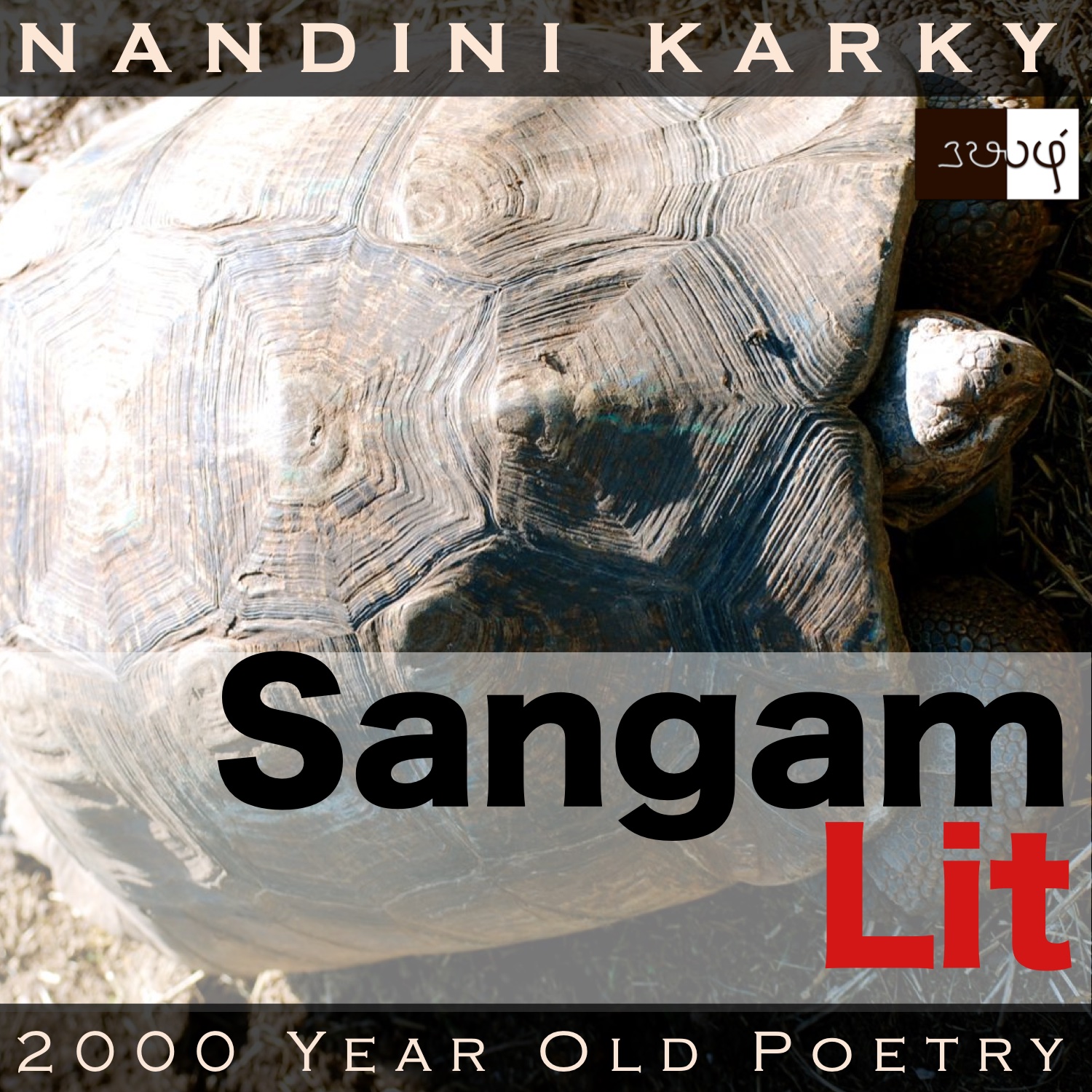Podcast: Play in new window | Download
Subscribe: Apple Podcasts | Spotify | Amazon Music | Android | iHeartRadio | TuneIn | RSS | More

In this episode, we perceive intriguing references to tortoise eggs, as portrayed in Sangam Literary work, Kurunthogai 152, penned by Killimangalam Kizhaar. The verse is situated in the hills of ‘Kurinji’ and speaks in the voice of the lady to her confidante, in response to her friend’s frustration that the lady was not bearing well with the man’s parting.
யாவதும் அறிகிலர், கழறுவோரே-
தாய் இல் முட்டை போல, உட்கிடந்து
சாயின் அல்லது, பிறிது எவன் உடைத்தே?
யாமைப் பார்ப்பின் அன்ன
காமம், காதலர் கையற விடினே
‘Abandoned’ cries aloud this one! In the opening words ‘யாவதும் அறிகிலர், கழறுவோரே’ meaning ‘what do they know, those people who are criticising?’, the verse resounds with a note of resentment against the lack of understanding in others. The phrases ‘தாய் இல் முட்டை’ meaning ‘an egg without its mother’ and ‘யாமைப் பார்ப்பின்’ meaning ‘a tortoise’s young ones’ spark many thoughts about these fascinating reptiles. Ending with the words ‘காதலர் கையற விடினே’ meaning ‘if the lover were to abandon’, the verse stresses on the core concept and welcomes us to know more.
A lady without her love and an egg without its mother sketch the hues of abandonment. The context reveals that the man and lady were leading a love relationship when the man parted away for a while. Unable to bear his parting, the lady languished and her confidante, intending to budge her out of this state, lest she draw the attention of the gossiping town, advises her to bear with the man’s separation. To the confidante, the lady says, “Those who scold and give advice, they know nothing! Like an egg without its mother, what else can happen but being locked within and being deprived of health, in this love akin to a tortoise’s young ones, if my lover were to forsake me!” With these words, the lady declares that her confidante does not seem to understand that this is the natural reaction in a lady who feels deserted by her love.
Time to explore the nuances in this tiny verse. The lady starts by saying pointedly that those who are going on and on about what she should and should not do, seem to understand nothing. She means none other than her friend! However, the anger at not being understood is not directed with a statement of ‘you did that, you did this’ but with a gentler ‘they did that, they did this’. Then, the lady asks what else could be the state of an egg relinquished by its mother? Indeed, the young one within will only shrivel and die, she answers herself. Talking about how like a nest of tortoise’s eggs, love too needs the warming presence of the beloved and if that beloved were to not be there, then obviously like those eggs without their mother, she too would pine and lose her health, the lady concludes.
At the core, the idea is simple. Love is like freshly laid eggs and these need the warmth of the lover to sustain and thrive. What shook me and set me on many searches was the reference being to tortoise eggs. Being a little aware of Olive Ridley turtles and their conservation in my city of Chennai, I knew that the turtle mothers lay their eggs and then, they vanish out of sight immediately after that. They don’t stick around like the birds, who bring food and take care of their hatchlings for a while. The turtle hatchlings have to break open their eggs and find the way to the seas all on their own. So, this ancient reference to tortoise eggs wilting without their mother’s care puzzled me. You may tell me that turtles and tortoises are somewhat different. Yes, turtles are more of water reptiles whereas tortoises belong to the land, with their heavier shells. Could this be the reason for the difference? So, I decided to investigate if the tortoises do take care of their eggs after laying them, unlike the turtles. Page after page, kept repeating the same words in the lines of ‘tortoise mothers do not stick around to wait for their young to hatch. Moment they lay the eggs, job’s done and they part away’.
This made me wonder if our Sangam ancestors, who have this far captured the ways of wildlife so accurately, were mistaken this time. My doubts were put to rest in a lucky find shortly thereafter. I came across a single exception in the tortoise family to the rule that the mother leaves its eggs after laying them. In this species, the female, unlike its counterparts, does not bury the eggs deep down in the mud, but lays them above ground and waits near the eggs to chase away predators too. This single exception is the ‘Asian brown tortoise’ found in Southeast Asia, and in India, only in the Northeastern state of Assam currently. However, this could have been different in the past, and perhaps, this species was found all over India. My trust in the acute observation of wildlife by the Sangam poets was once again restored, and I smiled to think how a few lines of ancient poetry led me to learn all these details about these gentle animal siblings of ours that thankfully grace this planet even today.




Share your thoughts...